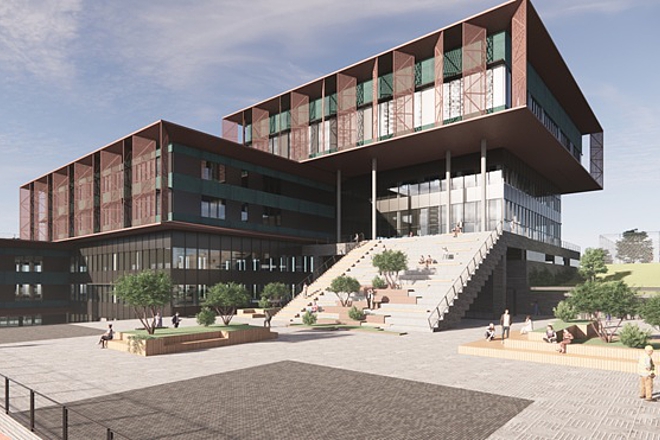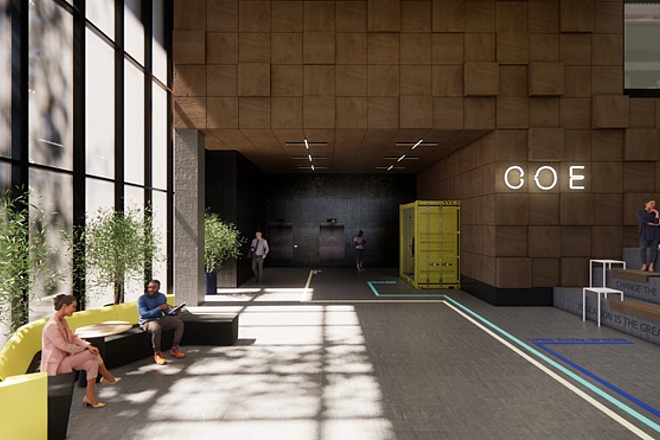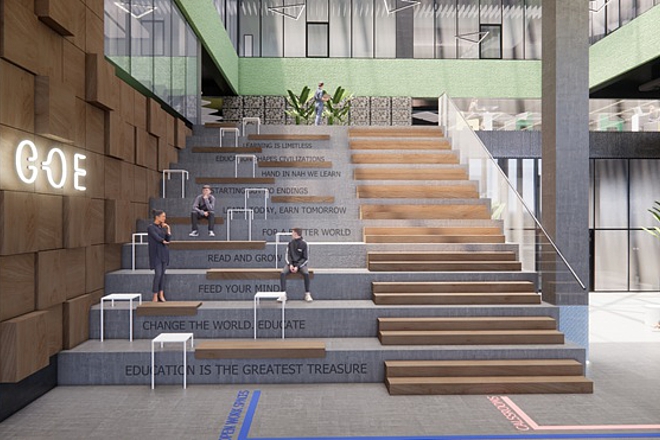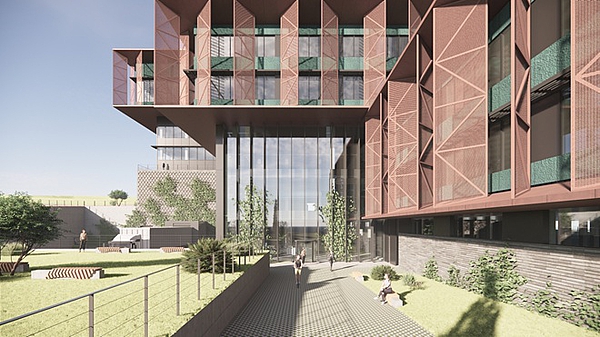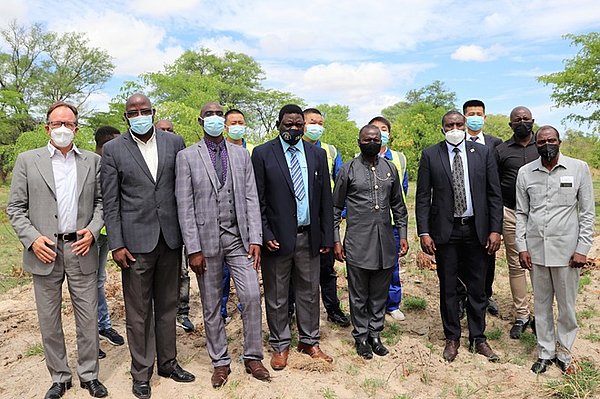NEWS
Groundbreaking and start of construction works for the Centre of Excellence in Tbilisi, Georgia
The German Government, through KfW Entwicklungsbank, is providing loan and grant funding to the Government of Georgia to build and operate the first Centre of Excellence (CoE) as a sectoral hub and vocational training institution. The CoE will serve the selected priority sectors of logistics and construction.
State-of-the-art infrastructure: The CoE campus will cover 13,000m² in three buildings with an allocated area of 2ha and will include workshops, laboratories and classrooms equipped to meet industry standards. Future expansions, such as a 120-student dormitory, promise an inclusive residential experience. Construction works will start early in 2025 and will be carried out by an international company, Geo Sky Construction LTD, selected through an international competitive bidding procedure. From 2027 onwards, the CoE campus will be available to educate around 1,000 students per year through diploma and certificate programmes designed to meet local and global workforce needs.
Pioneering vocational excellence in Georgia: The establishment and development of Georgia's first Centre of Excellence (CoE) in Logistics and Construction marks a significant milestone in the transformation of vocational education. Located in Tbilisi's Education and Science City (Didi Dighomi), this initiative addresses critical labour market challenges and skills shortages, using international best practices to foster a modern and competitive workforce. With a focus on innovation, sustainability and public-private collaboration, the CoE is setting a benchmark for educational excellence and ensuring that Georgia remains competitive in a rapidly evolving global economy.
A collaborative effort: The CoE demonstrates fruitful cooperation between the Georgian and German Governments, supported by PEM Consult through comprehensive technical assistance. PEM Consult’s extensive expertise has been instrumental: Since 2014, PEM Consult has been active in Georgia, spearheading initiatives in the areas of industry-led skills development, workforce enhancement, and labor market alignment. Its efforts include advancing private sector development in technical and vocational education and training (TVET), establishing and upgrading educational infrastructure, and organizational capacity building. These projects have been funded by the German Government, the European Commission, and the U.S. Millennium Challenge Corporation.
Vision and goals: The CoE is not just an educational institution; it is envisioned as a dynamic industrial hub. Its core objectives are to provide high quality, work-based vocational education and training in line with international standards, to foster partnerships with the private sector and to promote technological innovation. With a focus on sustainability, the CoE emphasizes green practices, digital transformation and the promotion of advanced materials in logistics and construction. It also aims to support and strengthen other local TVET providers in teacher training, learning resource development and quality improvement of TVET.
Strengthening public-private partnerships: Collaboration with more than 20 leading local and international organizations, with more to come, underlines the CoE's commitment to bridging the gap between academia and industry. From teacher training and marketing strategies to attract cadres, training/retraining programmes, private sector engagement, support for international collaborations, etc. will be launched in 2025 to ensure the CoE's service packages remain relevant and impactful.
A forward-looking initiative: By integrating sustainable practices, cutting-edge technology and sectoral research, the CoE is positioning Georgia as a regional leader in vocational education. Its focus on aligning educational outcomes with industry needs ensures a skilled and competitive workforce that is vital to Georgia's economic growth. PEM's pivotal role in establishing and managing a vocational training centre in Tbilisi, designed to be a national hub for excellence in the construction and logistics sectors, marks a major milestone in its sustained contribution to Georgia's socio-economic progress. Its key objectives include:
- Delivering High-Quality Vocational Education: Emphasizing work-based learning in logistics and construction via offering Diploma and certificate programs tailored to meet national and international standards. Supporting other local vocational education providers in teacher training, learning resources development and improvement of quality of vocational education.
- Partnering with Private Sector: The success heavily relies on robust collaboration with the private sector, which will contribute to the co-development and co-implementation of educational programs, Enhancement of teacher training and industry expertise; Support of the creation and improvement of educational resources; Participation in governance and operational management; etc.
- Advancing Innovation and Transfer of Technologies: Integrating technologies like artificial intelligence, robotics, and smart laboratories, identifying international know-how and new technologies for transferring to Georgia to enhance practical training and work or business practices in private sector.
- Supporting Sectoral Research: Acting as a hub and a partner for research and development, promoting innovation in logistics and construction.
- Encouraging Sustainability, Greening and Digitization: Promoting green practices, digital transformation, and the use of advanced materials. Implementing environmentally friendly approaches in infrastructure, training methodologies, and industry collaboration to align with global sustainability goals.
- Engaging Industry Leaders: Actively involving local and international experts in teaching and curriculum development.


